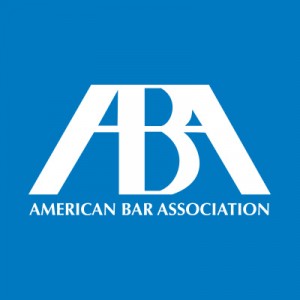ABA files amicus brief with Supreme Court seeking to preserve cy pres awards for legal aid groups

The American Bar Association on Monday filed an amicus brief that told the U.S. Supreme Court that class-action cy pres awards are often appropriate when paid to legal service groups that help provide access to justice.
Cy pres awards—paid to outside groups rather than class-action plaintiffs—provide an average of $15.5 million annually to legal services organizations, according to the ABA brief. Twenty-three states and Puerto Rico have enacted laws or rules authorizing cy pres awards from class-action settlements to be distributed to legal services organization that provide services to low-income residents.
A broad ruling imposing constitutional restrictions on cy pres awards would “potentially deprive legal services organizations of critical funding and low-income residents of legal representation,” the brief said. An ABA press release is here.
Cy pres awards are particularly appropriate in class actions aggregating small claims, the brief said. Class members with only small amounts at stake seldom bother to collect their shares of a settlement fund, creating a dilemma about how to distribute the settlement funds. Cy pres awards avoid returning the funds to the defendant or giving a windfall to class members who file claims, the ABA argued.
A fundamental purpose of class actions is to offer access to justice for people who could not otherwise realistically obtain justice to the justice system, the brief said. “Legal service organizations that represent poor and indigent litigants serve the same fundamental purpose,” the ABA brief adds. “With these closely aligned purposes, legal services organizations should in most cases be appropriate recipients of cy pres awards.”
At issue in the Supreme Court case is whether a cy pres award in a suit against Google meets the requirements of Rule 23(e)(2) of the Federal Rules of Civil Procedure, which requires class-action settlements to be “fair, reasonable and adequate.”
The ABA brief doesn’t take a position on the specifics of the case, which challenges a class-action settlement that gave $5.3 million of an $8.5 million settlement fund to groups that protect internet privacy. Another $2.125 million was provided for attorney fees.
The class action before the court had alleged web browsers disclosed Google searches to third-party websites. The settlement included an agreement by Google to revise its FAQ page but gave money only to three name plaintiffs.
The ABA brief cites ABA policy that urges adoption of court rules authorizing the distribution of residual funds in class actions to groups that help improve access to civil justice for people living in poverty. The resolution says all reasonable efforts should be made to fully compensate class members before residual funds are awarded to charitable or nonprofit groups.
Cy pres awards serve an important purpose in class actions, and the Supreme Court should “avoid broad pronouncements about the constitutionality of cy pres remedies in class action settlements,” the brief says.
The case is Frank v. Gaos.



